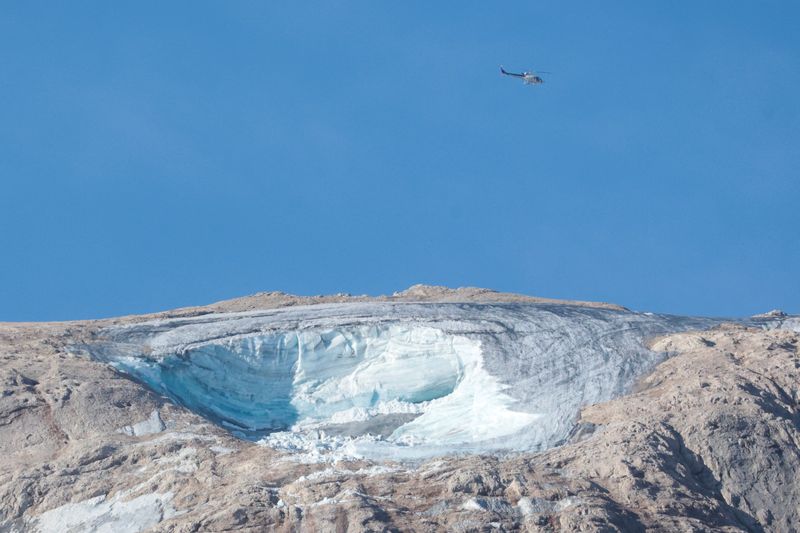By Borut Zivulovic
CANAZEI, Italy (Reuters) -Helicopter crews and drones flew over the Italian Alps on Monday searching for 13 people missing after part of a mountain glacier collapsed, killing at least seven people in a disaster experts linked to rising temperatures.
Much of Italy has been baking in an early-summer heatwave and scientists said climate change was making previously stable glaciers more difficult to predict.
Sunday's avalanche took place on the Marmolada, which at more than 3,300 metres is the highest peak in the Dolomites, a range in the eastern Italian Alps straddling the regions of Trento and Veneto.
Italian Prime Minister Mario Draghi said the disaster was linked to environmental factors.
"Today Italy weeps for these victims," Draghi said during a visit to meet rescue teams.
"But the government must think about what has happened and take steps to ensure that what happened is unlikely to do so again or can even be avoided," he added.
Seven people were killed and two of the eight people injured were in a serious condition, said Maurizio Fugatti, president of the Trento region.
Three people from the Czech Republic were among those unaccounted for. An Austrian tourist who was earlier reported missing has now been traced, the local authorities said.
"This is the first such accident in the history of the mountain," said Gino Comelli, who was helping to coordinate rescue efforts.
The peak was too unstable for rescuers to try to approach on foot, Comelli said, adding that recent hot weather had been a factor in the collapse.
Pope Francis said he was praying for the victims and their families.
"The tragedies that we are experiencing with climate change should force us urgently to pursue new ways that respect people and nature," he said on Twitter (NYSE:TWTR).
Rising average temperatures have caused the Marmolada glacier, like many others around the world, to shrink steadily over recent decades.
"The Marmolada glacier collapse is a natural disaster linked directly to climate change," said Poul Christoffersen, a professor in Glaciology at the University of Cambridge.
"High elevation glaciers such as the Marmolada are often steep and relying on cold temperatures below zero degrees Celsius to keep them stable," he added.
